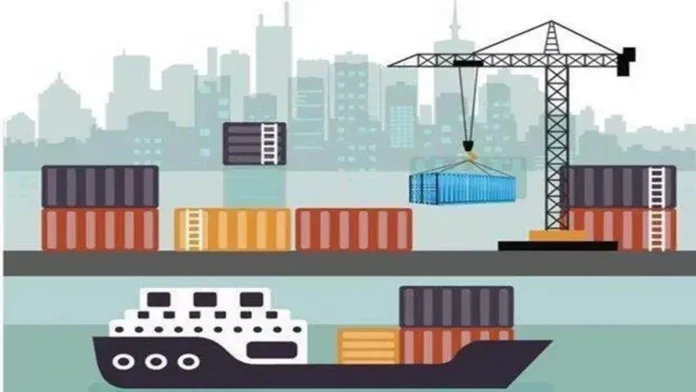[ad_1]
by S Ganesan
It takes two to tango, especially in a bilateral trade agreement. The Comprehensive Economic Partnership Agreement (CEPA), a free trade agreement between India and the UAE, was signed on February 18 and came into effect on May 1. India’s press release stated that “In general, India will benefit from the preferential market access provided by the UAE”.
According to the WTO, market access refers to “the conditions, tariff and non-tariff measures agreed by members to enter their markets for specific goods”. Preferential market access provides countries with a comparative advantage over other countries. Free trade agreements promise not only to cut tariffs, but also to cut non-tariff measures. When one party to a free trade agreement chooses to violate mutually agreed tariffs and non-tariff measures, trade is ultimately affected. All free trade agreements are accompanied by binding and mandatory norms on sanitary and phytosanitary (SPS) measures. CEPA is no exception.
According to the WTO, SPS measures refer to measures implemented by member countries in the field of food safety and animal and plant health standards. The WTO Agreement on the Application of Sanitary and Phytosanitary Measures sets out the basic rules. It allows countries to set their own standards, but says these must be based on science and risk assessment. SPS measures include pesticide residues in exported food. The SPS agreement encourages WTO members to use the international standards on pesticide residues developed by Codex.
Also read: Xi Jinping’s challenge to China
Pesticide residues are traces of pesticides in or on agricultural products at the time of harvest. A Maximum Residue Limit (MRL) is the upper limit for such residues that are legally permitted in traded food and agricultural products. It is usually expressed in parts per million (ppm). The MRL is not a toxicological safety standard, but a transactional standard.
Chapter IV of CEPA contains complete information on the mutually agreed and binding SPS measures between India and the UAE. It states that, inter alia, parties, while promoting trade, must:
Enhanced SPS protocol,
ensure that the SPS measures implemented do not create unreasonable barriers to trade,
encourage the adoption of science-based international standards and their implementation, and
Confirm their rights and obligations under the SPS agreement.
UAE U-turn
After agreeing to the norms, the UAE appears to have made a U-turn as it now applies the European Union’s (EU) pesticide maximum residue limit of 0.01 ppm to several pesticides and food. This is not in line with the express agreement with the UAE in Chapter 4. This has a significant economic and social impact on our agricultural exports to the country.
In the EU, the MRL for pesticides that have been withdrawn/cancelled for registration and use is as low as 0.01 ppm. The 0.01 ppm limit is equal to 1 gram per 100 tons of produce. At this level, pesticide residues are far beyond toxicological, biological or environmental relevance. It is simply a major non-tariff barrier to entry. A 0.01 ppm MRL is as good as zero tolerance.
The EU’s import tolerance of 0.01 ppm lacks the sufficient support required by the WTO SPS Agreement and deviates unreasonably from the Codex MRLs, which are considered “international standards”. According to Articles 2 and 5 of the SPS Agreement, when WTO members choose different MRLs, they must be based on risk assessment and supported by sufficient scientific evidence.
The EU MRL of 0.01 ppm is not based on a scientific assessment of risk, which is required by Article 5.1. It’s based on danger. The WTO-SPS Agreement stipulates that, in determining appropriate SPS measures, WTO members shall minimize adverse effects on trade.
Unaware of the fact that the EU’s import tolerance of 0.01 ppm is completely inconsistent with the SPS agreement and therefore in breach of CEPA Chapter 4 obligations, the UAE has already begun to apply this fact. This is so shocking.
If the 0.01 ppm MRL is applied, agricultural products that comply with our country’s MRL may often not be compliant when entering the UAE. This has become the most contentious non-tariff barrier (NTB) between India and the UAE in recent months.
The UAE’s refusal to export consignments using WTO-inconsistent MRLs of 0.01 ppm has serious consequences for Indian agricultural production, prices and farmers’ incomes.
Our Directorate General of Foreign Trade (DGFT) does not maintain data and records regarding the UAE’s rejection of the 0.01 ppm pesticide MRL for non-WTO compliance. Our interactions with Indian exporters of spices, vegetables, rice, etc. to the country indicate that there is widespread concern about the adoption of EU standards. It is high time for the Indian authorities to resolve this issue immediately through bilateral consultations.
The author is a consultant to the Center for Environment and Agriculture, Mumbai (Trade-Related International Agreements)
[ad_2]
Source link



